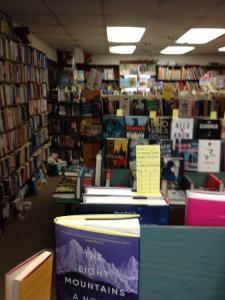The other day I had a hankering for Religion Index One.I don’t think it exists anymore, at least not in the format I once knew it.RI1 was a print volume produced by the American Theological Libraries Association, or ATLA.This tome was an indexed list of journal articles that had come out on any given topic in the past year or so, and it stretched back to the 1940s.The idea was that it was as close to “one stop shopping” as a scholar could get for finding publications while doing research.I suspect it’s all done online now.One of the tricks of the trade I’ve learned from not being part of the academy is that if you maintain membership in one of the larger bodies—the American Academy of Religion, or the Society of Biblical Literature—you can find out who’s working on what by searching the programs of their annual meetings.
This may sound like a terribly geeky thing to do; admittedly it is.Nevertheless, I’ve uncovered lots of information by doing just this.If you want to know who’s been researching a topic, look for who’s presented a paper on it over the past few years.It’s not failsafe, of course.Some of us aren’t really encouraged to give papers on company time anyway (and what time isn’t company time?) but we nevertheless research anyway.All the journal articles and book chapters that I’ve contributed over the past six years or so have been invited submissions, with one exception.Ironically, I taught and published full-time for nearly 15 years with no outside invitations made.Once I was no longer in a position to access RI1 people started to invite me to submit papers.It’s pretty difficult to do in current circumstances.

With the continuing factories churning out doctorates in religious studies—itself a stagnant job pool—there’s plenty being published.Online sources mean even more venues to get things “in print.”There really is no clearinghouse to find it all, beyond Google.ATLA still exists, and they now produce a searchable database.Like JSTOR, however, it’s only available to the traditional academic and the occasional wealthy bystander.Since the AAR and SBL programs are open to the public for searching, even sorts like me can gain access to a small wealth of knowledge.Or at least a wealth of papers and publications, which may not be the same thing.Still, in quiet moments I reflect on walking to a physical library and thumbing through a book made of authentic paper, and feeling, at the end of the day, as if I’d accomplished something.
